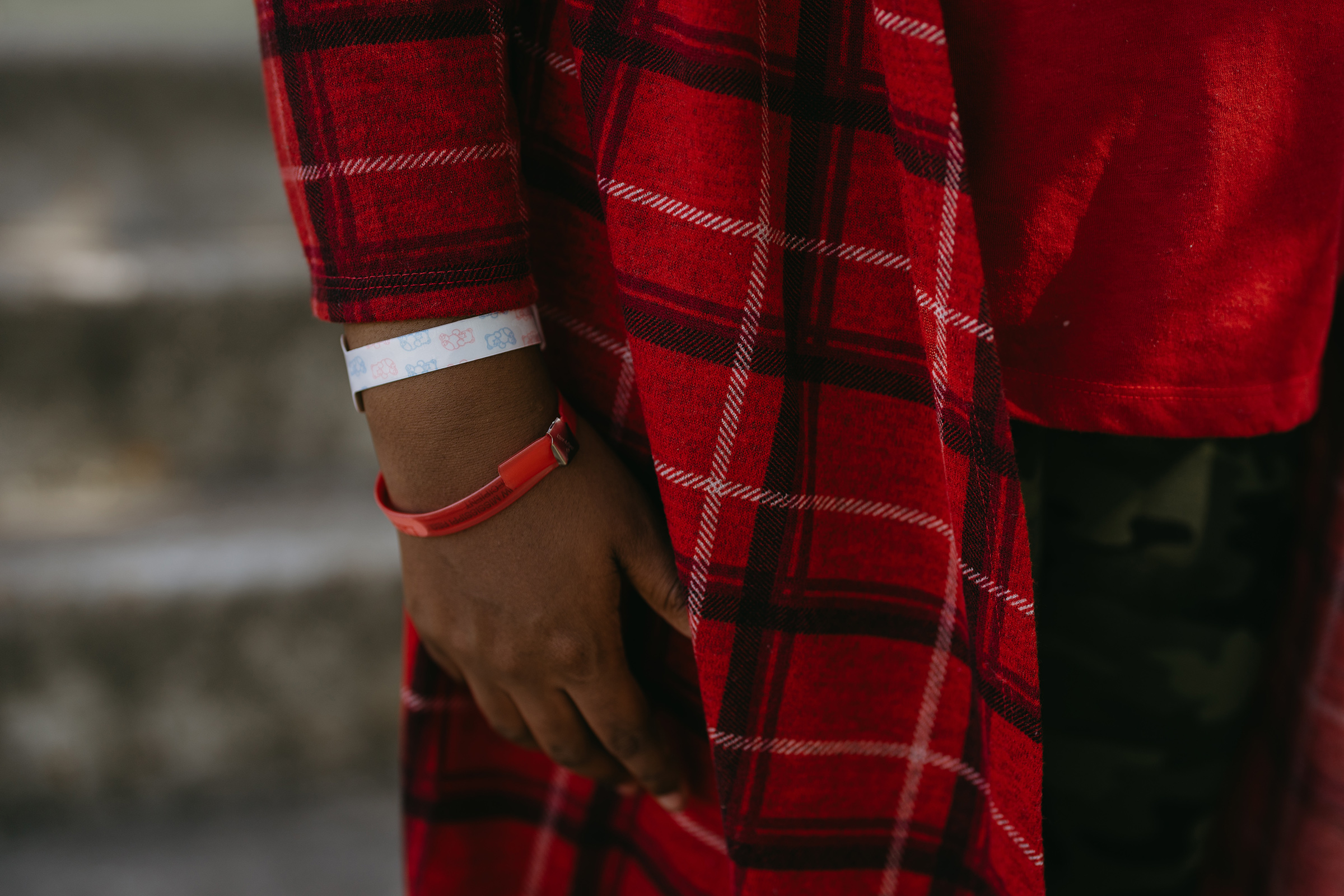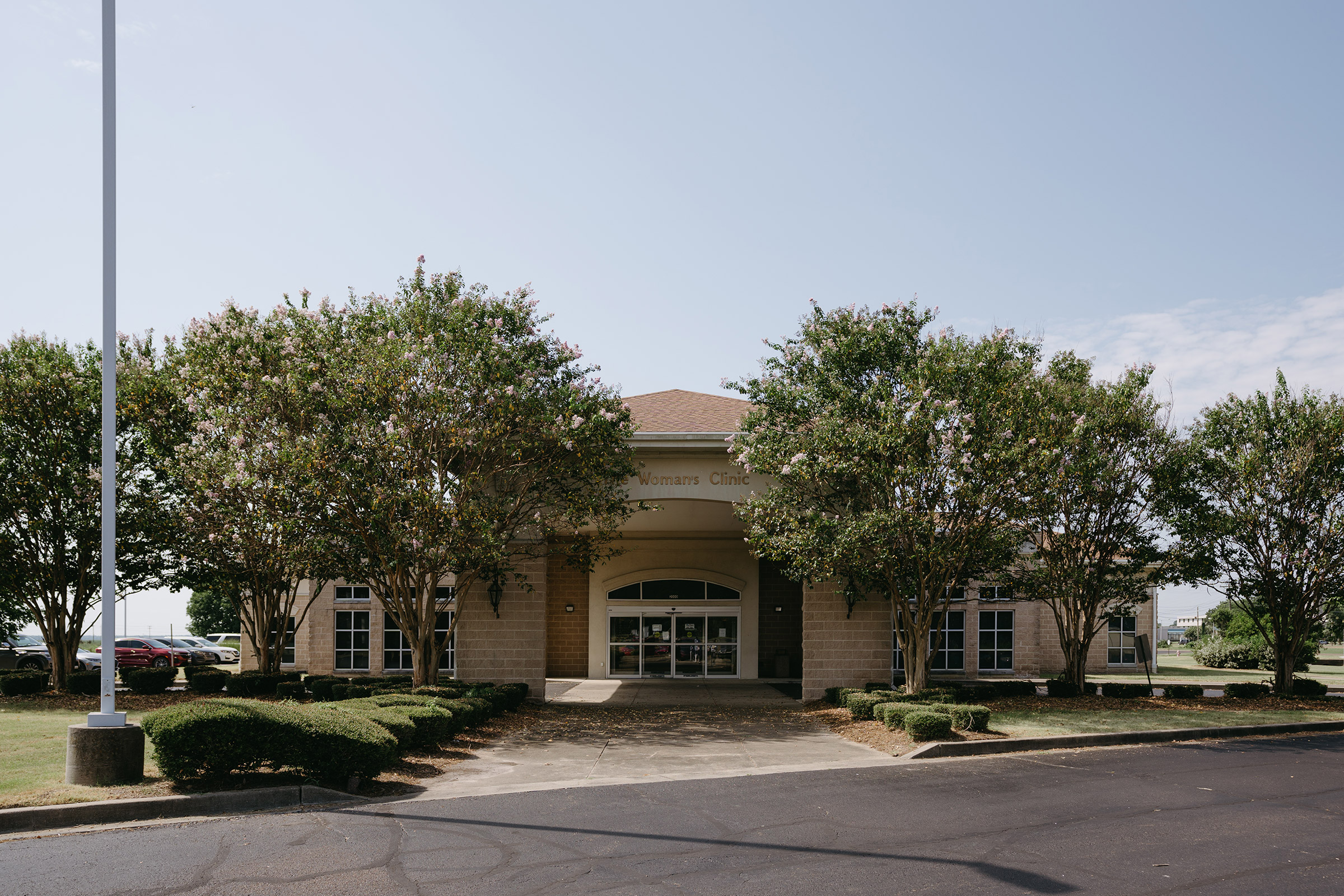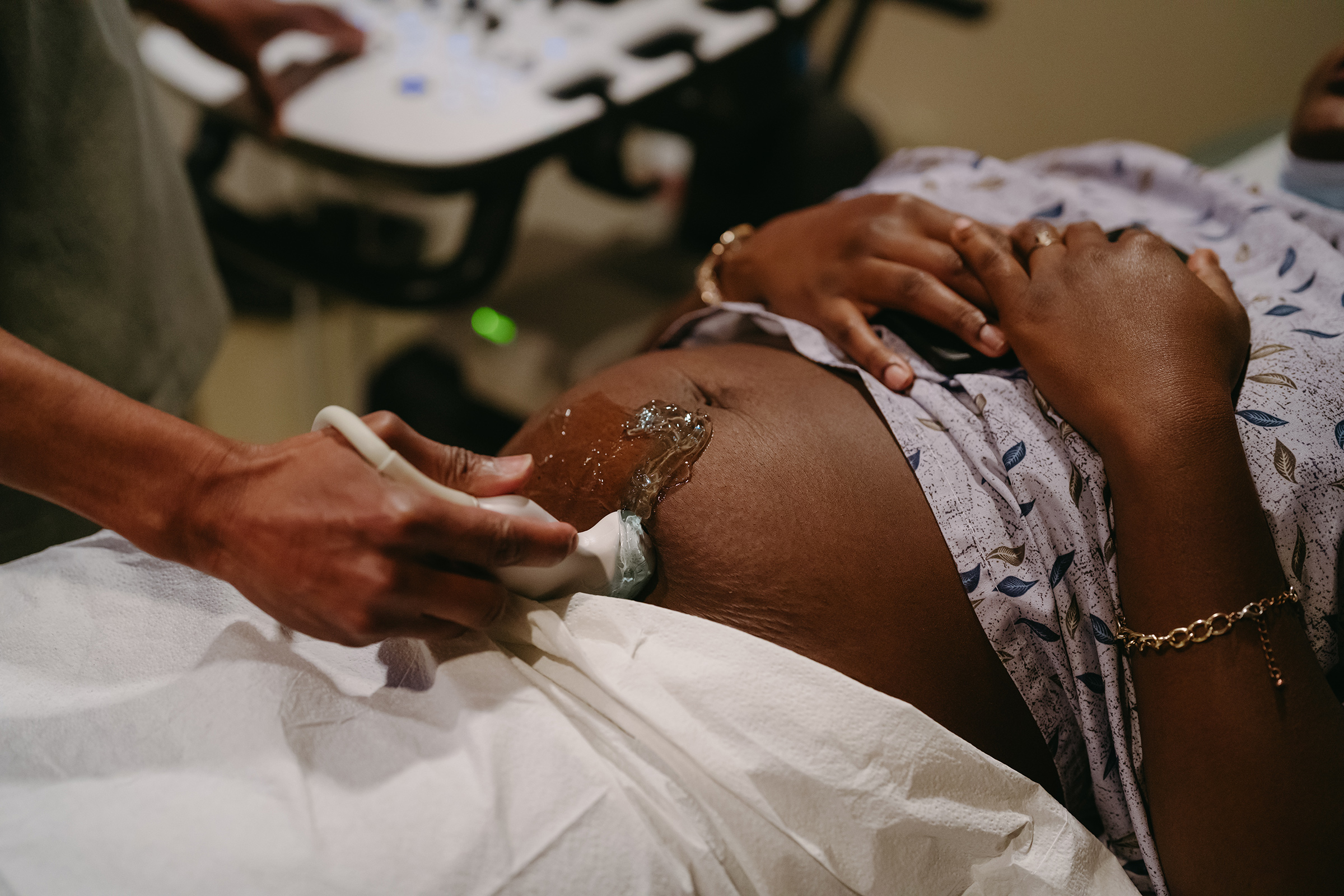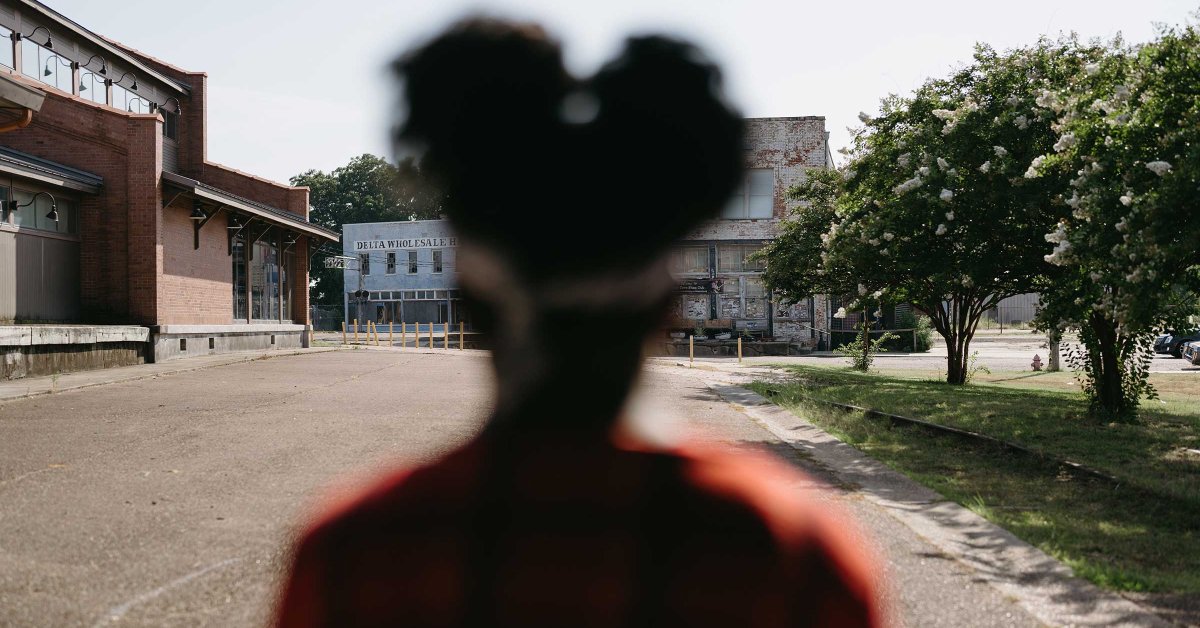
She Just Had a Baby. Soon, She'll Start 7th Grade.
After the fall of Roe v. Wade, some travel hundreds of miles to get abortions. This is the story of a girl who couldn't
She Wasn't Able to Get an Abortion. Now She's a Mom. Soon She'll Start 7th Grade.
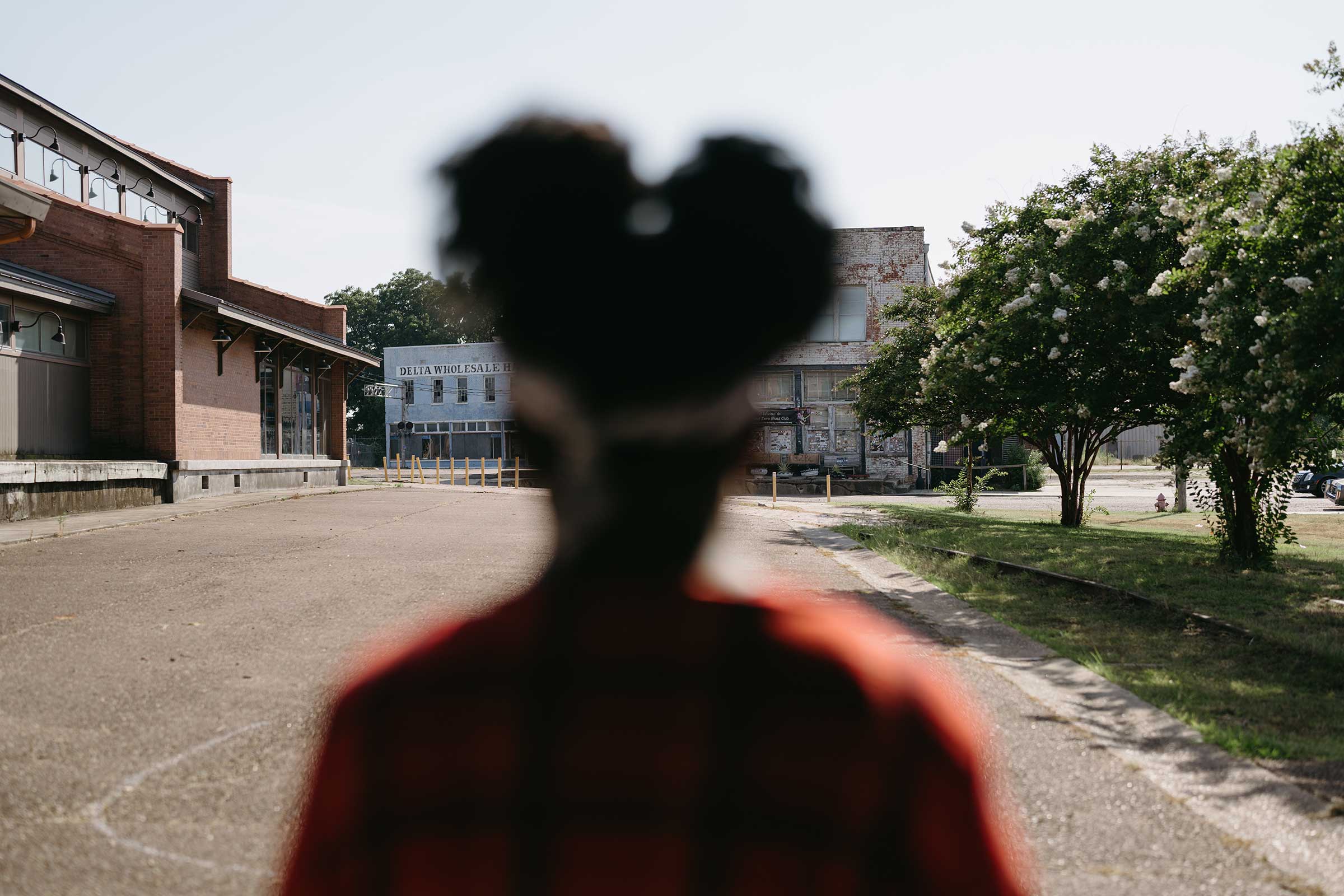
Ashley in Clarksdale, Miss., Aug. 1, 2023.
Lucy Garrett for TIME
BY BY CHARLOTTE ALTER/CLARKSDALE, MISS.
AUGUST 14, 2023 6:00 AM EDT
Ashley just had a baby. She’s sitting on the couch in a relative’s apartment in Clarksdale, Miss., wearing camo-print leggings and fiddling with the plastic hospital bracelets still on her wrists. It’s August and pushing 90 degrees, which means the brown patterned curtains are drawn, the air conditioner is on high, and the room feels like a hiding place. Peanut, the baby boy she delivered two days earlier, is asleep in a car seat at her feet, dressed in a little blue outfit. Ashley is surrounded by family, but nobody is smiling. One relative silently eats lunch in the kitchen, her two siblings stare glumly at their phones, and her mother, Regina, watches from across the room. Ashley was discharged from the hospital only hours ago, but there are no baby presents or toys in the room, no visible diapers or ointments or bottles. Almost nobody knows that Peanut exists, because almost nobody knew that Ashley was pregnant. She is 13 years old. Soon she’ll start seventh grade.
In the fall of 2022, Ashley was raped by a stranger in the yard outside her home, her mother says. For weeks, she didn’t tell anybody what happened, not even her mom. But Regina knew something was wrong. Ashley used to love going outside to make dances for her TikTok, but suddenly she refused to leave her bedroom. When she turned 13 that November, she wasn't in the mood to celebrate. “She just said, ‘It hurts,’” Regina remembers. “She was crying in her room. I asked her what was wrong, and she said she didn’t want to tell me.” (To protect the privacy of a juvenile rape survivor, TIME is using pseudonyms to refer to Ashley and Regina; Peanut is the baby’s nickname.)
The signs were obvious only in retrospect. Ashley started feeling sick to her stomach; Regina thought it was related to her diet. At one point, Regina even asked Ashley if she was pregnant, and Ashley said nothing. Regina hadn’t yet explained to her daughter how a baby is made, because she didn’t think Ashley was old enough to understand. “They need to be kids,” Regina says. She doesn’t think Ashley even realized that what happened to her could lead to a pregnancy.
On Jan. 11, Ashley began throwing up so much that Regina took her to the emergency room at Northwest Regional Medical Center in Clarksdale. When her bloodwork came back, the hospital called the police. One nurse came in and asked Ashley, “What have you been doing?” Regina recalls. That’s when they found out Ashley was pregnant. “I broke down,” Regina says.
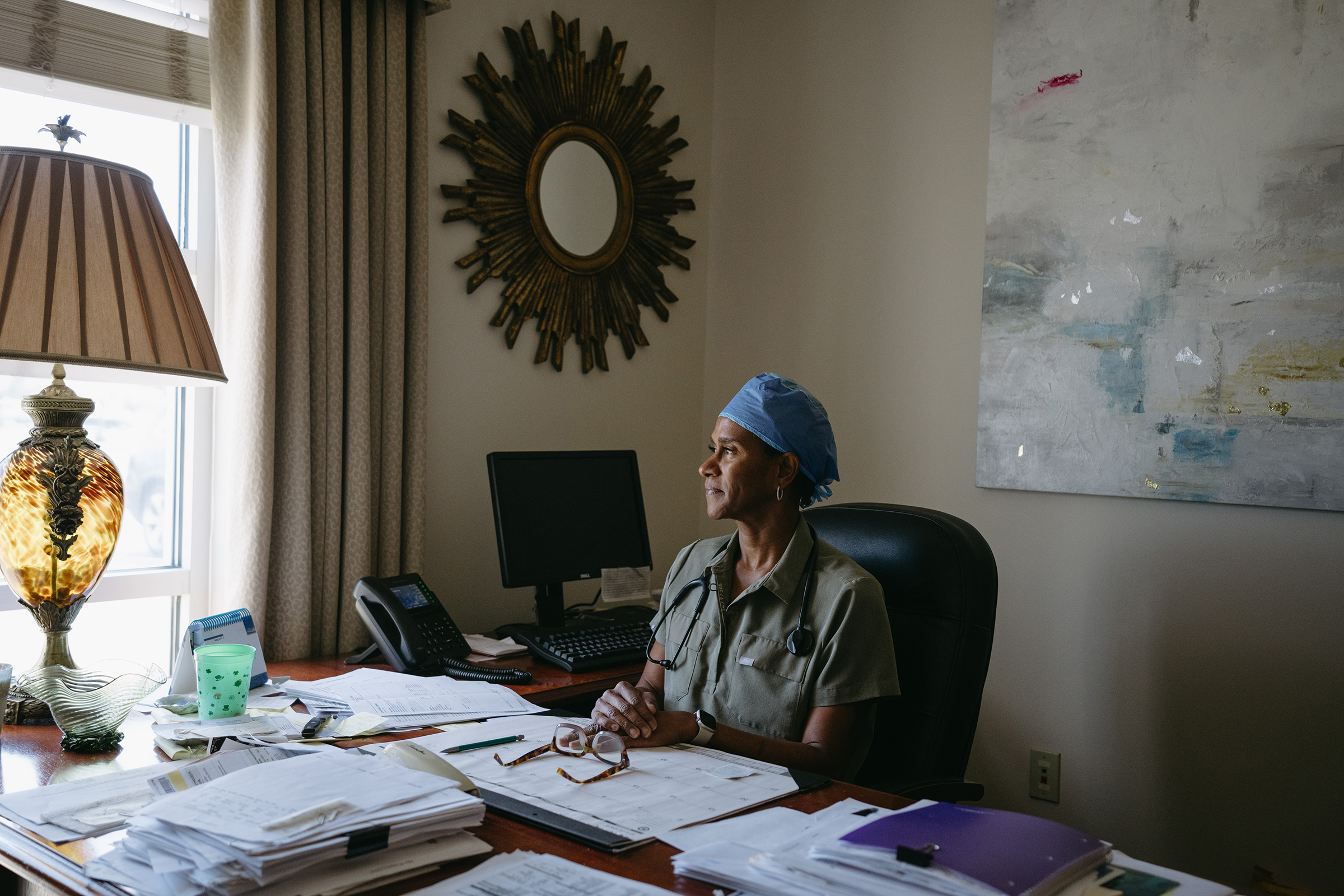
Dr. Erica Balthrop at the Clarksdale Woman's Clinic on Aug. 2.
Lucy Garrett for TIME
Dr. Erica Balthrop was the ob-gyn on call that day. Balthrop is an assured, muscular woman with close-cropped cornrows and a tattoo of a feather running down her arm. She ordered an ultrasound, and determined Ashley was 10 or 11 weeks along. “It was surreal for her,” Balthrop recalls. "She just had no clue.” The doctor could not get Ashley to answer any questions, or to speak at all. “She would not open her mouth.” (Balthrop spoke about her patient's medical history with Regina's permission.)
At their second visit, about a week later, Regina tentatively asked Balthrop if there was any way to terminate Ashley’s pregnancy. Seven months earlier, Balthrop could have directed Ashley to abortion clinics in Memphis, 90 minutes north, or in Jackson, Miss., two and a half hours south. But today, Ashley lives in the heart of abortion-ban America. In 2018, Republican lawmakers in Mississippi enacted a ban on most abortions after 15 weeks of pregnancy. The law was blocked by a federal judge, who ruled that it violated the abortion protections guaranteed by Roe v. Wade. The Supreme Court felt differently. In their June 2022 decision in Dobbs v. Jackson Women’s Health Organization, the Supreme Court overturned the constitutional right to abortion that had existed for nearly half a century. Within weeks, Mississippi and every state that borders it banned abortion in almost all circumstances.
Balthrop told Regina that the closest abortion provider for Ashley would be in Chicago. At first, Regina thought she and Ashley could drive there. But it’s a nine-hour trip, and Regina would have to take off work. She’d have to pay for gas, food, and a place to stay for a couple of nights, not to mention the cost of the abortion itself. “I don’t have the funds for all this,” she says.
So Ashley did what girls with no other options do: she did nothing.
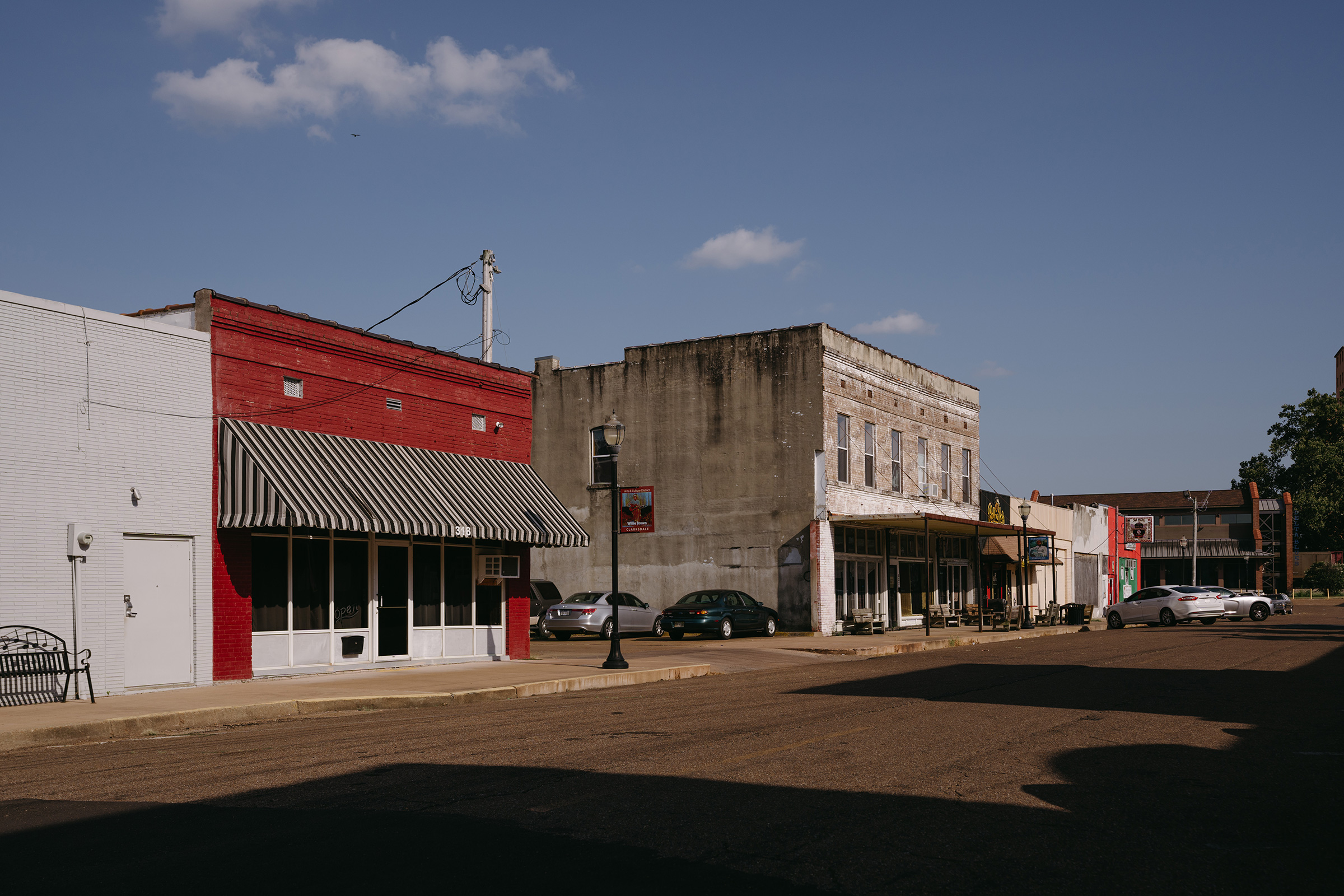
Clarksdale, Miss.
Lucy Garrett for TIME
Clarksdale is in the Mississippi Delta, a vast stretch of flat, fertile land in the northwest corner of the state, between the Mississippi and Yazoo rivers. The people who live in the Delta are overwhelmingly Black. The poverty rate is high. The region is an epicenter of America’s ongoing Black maternal-health crisis. Mississippi has the second-highest maternal-mortality rate in the country, with 43 deaths per 100,00 live births, and the Delta has among the worst maternal-healthcare outcomes in the state. Black women in Mississippi are four times as likely to die from pregnancy-related complications as white women.
Mississippi’s abortion ban is expected to result in thousands of additional births, often to low-income, high-risk mothers. Dr. Daniel Edney, Mississippi’s top health official, tells TIME his department is “actively preparing” for roughly 4,000 additional live births this year alone. Edney says improving maternal-health outcomes is the “No. 1 priority” for the Mississippi health department, which has invested $2 million into its Healthy Moms, Healthy Babies program to provide extra support for new mothers. “There is a sense of following through, and not just as a predominantly pro-life state,” says Edney. “We don’t just care about life in utero. We care about life, period, and that includes the mother’s life and the baby’s life.”
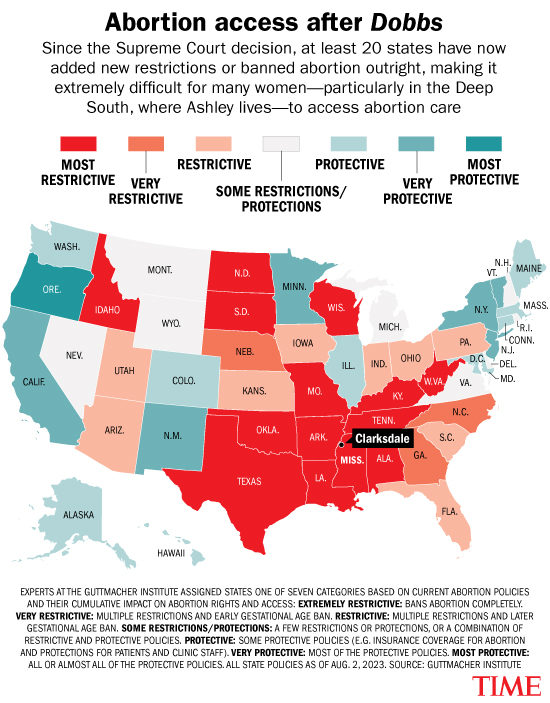
Lon Tweeten for TIME
Mississippi’s abortion ban contains narrow exceptions, including for rape victims and to save the life of the mother. As Ashley's case shows, these exceptions are largely theoretical. Even if a victim files a police report, there appears to be no clear process for granting an exception. (The state Attorney General’s office did not return TIME’s repeated requests to clarify the process for granting exceptions; the Mississippi Board of Medical Licensure and the Mississippi State Medical Association did not reply to TIME’s requests for explanation.) And, of course, there are no abortion providers left in the state. In January, the New York Times reported that since Mississippi's abortion law went into effect, only two exceptions had been made. Even if the process for obtaining one were clear, it wouldn’t have helped Ashley. Regina didn’t know that Mississippi’s abortion ban had an exception for rape.
Even before Dobbs, it was perilous to become a mother in rural Mississippi. More than half the counties in the state can be classified as maternity-care deserts, according to a 2023 report from the March of Dimes, meaning there are no birthing facilities or obstetric providers. More than 24% of women in Mississippi have no birthing hospital within a 30-minute drive, compared to the national average of roughly 10%. According to Edney, there are just nine ob-gyns serving a region larger than the state of Delaware. Every time another ob-gyn retires, Balthrop gets an influx of new patients. “These patients are having to drive further to get the same care, then they're having to wait longer,” Balthrop says.
